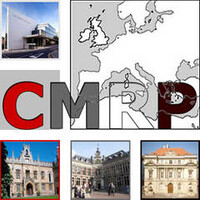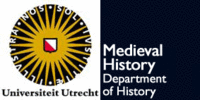Cultural Memory and the resources of the past – CMRP
The Project Cultural Memory and the Resources of the Past was carried out in cooperation with the universities of Utrecht (NL), Cambridge and Leeds. It was financed by HERA
For information see the booklet

The Early Middle Ages are the first period of history from which many thousand original manuscripts survive. Ancient literature and scholarship, the Bible and patristic writing have come to us through this filter. This rich material has mainly been used to edit texts as witnesses of the period in which they were written. But it also constitutes a fascinating resource to study the process of transmission and transformation of texts and other cultural contexts. It can shed new light on the codification and modification of the cultural heritage and its political uses, and constitutes an exemplary case study for cultural dynamics in general. Just as the Carolingian period (8th/9th century AD) has filtered and reshaped the past according to its concerns, so the Modern Age has used and sometimes misused its ancient and medieval heritage. Work in the project has increasingly exposed the importance of Rome, Roman history, and the integration of Christian and imperial Rome into the cultural memory of early medieval Europe. The extant manuscript material from the early Middle Ages constituted a major resource to shed new light on the process of codification and modification of the cultural heritage, and for the study of cultural dynamics in General.
HERA (Humanities in the European Research Area) is a European Networking Grant supported by the EU and National Research Council; the calls are highly competitive (under 10% success rate). The project was led by Walter Pohl and involved the Universities of Utrecht (Mayke de Jong), Leeds (Ian N. Wood) and Cambridge (Rosamond McKitterick). The project part at the Institute for Medieval Research, where Clemens Gantner was employed as researcher, addressed the topic “Learning Empire – creating cultural resources for Carolingian rulership”.
Publications
The Resources of the Past in Early Medieval Europe, ed. Clemens Gantner/Rosamond McKitterick/Sven Meeder (Cambridge 2015)
with:
- Walter Pohl, Creating cultural resources for Carolingian rule: Historians of the Christian empire (15-33)
- Marianne Pollheimer, Divine law and imperial rule: the Carolingian reception of Junillus Africanus (118-134)
- Clemens Gantner, The eighth-century papacy as cultural broker (245-261)
Clemens Gantner, Freunde Roms und Völker der Finsternis (Wien 2014)

Sponsored by:

Collaborating institutes:



